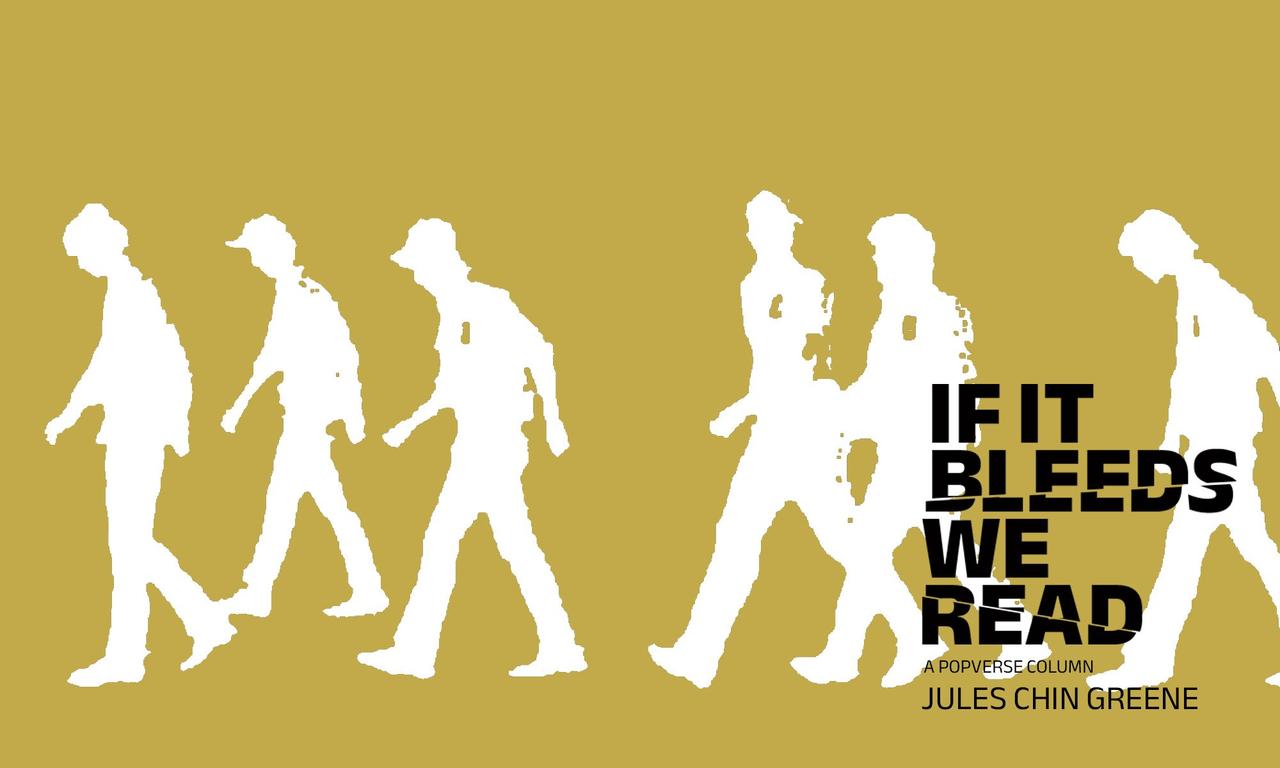If you click on a link and make a purchase we may receive a small commission. Read our editorial policy.
The Long Walk is Stephen King’s dark take on The Odyssey for Vietnam War-era America
Stephen King's book, The Long Walk, lifts elements from The Odyssey by Homer for a dystopian story reflecting the bleakness of the Vietnam War

Popverse's top stories
- "And my axe!" Lord of the Rings star John Rhys Davies says there's one world leader who deserves Gimli's iconic weapon
- Wonder Man is the Andor of Marvel Studios’ modern TV series on Disney+
- Absolute Batman happened because DC Comics writer Scott Snyder got bored reading about ‘superhero fatigue’
American culture has a very romantic view of white men embarking on arduous journeys with nothing but the clothes on their backs and their common sense in their pockets (or lack thereof). Think of stories like Jeremiah Johnson, Henry David Thoreau, and Lewis and Clark. They're narratives that inspired men like Christopher McCandless, a 24-year-old college graduate who scampered off into the Alaskan wilderness and starved to death after 3 months of "living off the land," and subsequently became the subject of the book and film, Into the Wild. In the eyes of our culture, men walking across the North American continent is as natural as living or dying. It's precisely this idea that Stephen King, under his Richard Bachman alias, was so interested in unpacking in his early book, The Long Walk.
The Long Walk takes the sentiment behind "life is a highway" and, in perfect Stephen King fashion, puts a hellish spin on it. The road becomes a place where characters either live or die, transforming something quotidian into a battleground. The premise of The Long Walk is simple: 100 teen boys each year are chosen, by lottery, to participate in an event where they must walk at a pace above 4 miles per hour at all times, without stopping, until the last one is left walking. If you go under 4 miles per hour, you get a warning; if you stop, you get a warning; if you try to run away from the road, you get a warning. After your third warning, you get your "ticket" - a bullet straight through your head - from the gun of a soldier chaperoning the Walk. Whoever wins the Walk gets a "Prize," understood to be an undisclosed amount of money.
The Walk isn't comfortable. Journeys like these seldom are, but the Walk is uniquely cruel. Walkers aren't allowed to stop when they have to urinate or defecate. They don't stop to sleep, either. Between the piss, the shit, the vomit, the snot, the pus, and the blood splattered onto the pavement, the Walk is hell.
The Long Walk provides a grotesque twist on Homer's Odyssey

In rendering the events of The Long Walk in such visceral detail, Stephen King draws our attention to the core narratives in our culture that uphold the Walk - namely, Homer's Odyssey. Now, you might be wondering, "Jules, we get it, you read a bad translation of The Odyssey in ninth grade and you've had a grudge against Homer ever since," and I'm here to say no, that's not what this is about. Across his career, Stephen King has shown that he is a master of turning the familiar into a horrifying image of the uncanny. And we see the roots of this skill in The Long Walk, with King's allusions to The Odyssey.
Over the course of the Walk, our protagonist, Garraty, who has largely kept his head together for the bulk of the journey, gets overcome with a sense of homesickness. As the route of the Walk leads them through Garraty's hometown, where his mother and girlfriend will be there to cheer him on, Garraty confides in another boy, "'I'm scared, too. And homesick. I... I mean we...' He groped. 'We're all too far away from home. The road keeps us away. I may see them, but I won't be able to touch them.'"
This element of homesickness is in line with the theme of nostos from The Odyssey, or the desire to return home. It's where we get the word "nostalgia" from in English. And while Odysseus's return home is heroic and well-deserved, for Garraty, it's a nightmarish, double-edged sword. On one hand, it's a testament to his willpower to survive the Walk, but on the other, it's excruciating because he realizes that he's now a dead man walking, just by being part of the Walk to begin with. After he passes through his town, the heaviness of the situation dawns on him: "It was over. Even if he won, if he managed to outlast McVries and Stebbins and Baker, it was over. He was never going home again," King writes.
Like warfare, the Walk is unnatural because the young are sent by the old to die

Considering that Stephen King wrote The Long Walk in 1966 and 1967 while a student at the University of Maine, it's impossible to overlook the parallels between the story and the reality of the Vietnam War. I don't think I need to explain to you how thousands of college-age men who managed to survive combat never really "came" home, even when their physical bodies returned to American soil. It's a rude awakening from the sunny image of the Hobbits in Lord of the Rings returning to The Shire, an apt reaction to being made to fight in a war that had nothing to do with you in the first place.
King digs into the legacy of The Odyssey in The Long Walk as a way to contextualize the contemporary trauma of the Vietnam War, revealing the deeply unnatural qualities of war. Yes, war is part of human nature, something we've inherited from our warlike chimp ancestors (I can tell you all about the Gombe Chimpanzee War from the mid-1970s some other time), but there is something deeply unnatural about old men sending dozens, hundreds, thousands, of men in the prime years of their lives to their deaths. King represents this element in The Long Walk through the figure who presides over the Walk: The Major. The Major has no identity; he's an older military man hidden behind a large pair of sunglasses, a figure who appears and disappears several times throughout the Walk. To our horror, though, we discover in the final pages of the book that The Major is the father of one of the boys in the Walk. In King's view, like the Walk itself, warfare in the twentieth century is meaningless, arbitrary, cannibalistic, unfair, and above all, a betrayal.
The Long Walk chronicles how boys are turned into the walking dead

One of the most haunting deployments of The Odyssey within The Long Walk is the way that Ray Garraty and his buddies age over the span of a week, in the only way you can when you see scores of your peers gunned down in front of you. Paralleling the transformation of Odysseus's son, Telemachus, from boy to man, Garraty and the last handful of boys in the Walk take this archetypal trajectory to an extreme level. They become old men. "'Tell us a story, Garraty,' Stebbins said abruptly. 'Tell us a story that will take our minds off our troubles.' He had aged unbelievably; Stebbins was an old man. 'Yeah,' McVries said. He also looked ancient and wizened. 'A story, Garraty.'"
In literature, we understand that old men tell tales. Indeed, The Odyssey opens with, "Sing in me, Muse, and through me tell the story" of Odysseus's homecoming journey. King's reference to The Odyssey here, with Stebbins and DeVries asking Garraty to tell them a story, puts a darker meaning on our accepted oral storytelling tradition in the West. We understand that when Stebbins and DeVries and Garraty go down, they're not dying as young men in spirit. They're dying in part as "ancient and wizened" old men, a status they've gained from the Walk's rapid, dehumanizing effects on them, even though they still retain elements of their youth - a desire to hear a story. This juxtaposition is frightening, and much, much worse than the old man baby from The Curious Case of Benjamin Button (I gotta make myself laugh somehow, y'all). It's this unnatural acceleration that makes the final fates of Stebbins, DeVries, and Garraty so difficult to read, because none of this would have happened to them if not for the state organizing the Walk every year.
The older I get, and the more that I see how little I knew about myself and the world when I was nineteen, twenty, twenty-one years old, the more I'm haunted by the events of the Vietnam War. The Long Walk remains an emotionally raw artifact from the Vietnam era, showcasing not only a young Stephen King's skill in crafting a suspenseful story with memorable characters but also his ability to synthesize contemporary events within their cultural precedents.
When Christopher Nolan's adaptation of The Odyssey comes out next year, I'll know I'll have the film adaptation of The Long Walk swimming around in the back of my head. I can't help it.
Just like yourself, the Popverse staff spends a whole lot of time with our respective noses in respective books. It's why we've come up with stuff like:
- The hottest upcoming fiction
- Queer romance to add to your reading list
- A genre fiction literary column called If It Bleeds, We Read
...and a whole lot more. Join our metaphorical library, won't you? There are no late fees and you can be as loud as you want, so long as the people you live with are OK with it.
Follow Popverse for upcoming event coverage and news
Find out how we conduct our review by reading our review policy
Let Popverse be your tour guide through the wilderness of pop culture
Sign in and let us help you find your new favorite thing.
















Comments
Want to join the discussion? Please activate your account first.
Visit Reedpop ID if you need to resend the confirmation email.